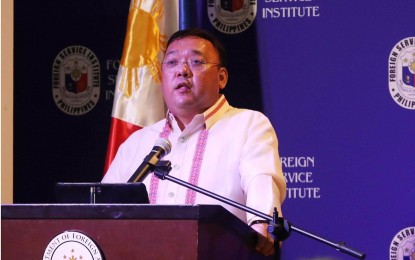
MANILA – Malacañang on Saturday refused to heed several recommendations made by the United Nations’ Office of the High Commissioner for Human Rights (UN OHCHR) to improve the human rights situation in the Philippines, saying these are grounded on “faulty conclusions.”
This after the UN human rights office released a report dated June 4, which cited key human rights issues in the Philippines, including the supposed violations perpetrated in the conduct of the anti-narcotics war launched by President Rodrigo Duterte’s administration.
“The Philippine government notes the recommendations made by the OHCHR, but cannot commit to their full implementation given the faulty conclusions on which they were premised,” Presidential Spokesperson Harry Roque said in a press statement.
The UN OHCHR, in its report on the situation of human rights in the Philippines, took note of the supposed widespread and systematic killings, the arbitrary deprivation of liberty, and violations of the right to health of drug offenders.
The report also focused on the “worrying new laws and amendments” to strengthen public order and counter-terrorism, “which risk eroding constitutional and other legal protections.”
The UN human rights office also emphasized in its report that labeling individuals and groups as communists or terrorists “has been a persistent and powerful threat to civil society.”
It also stated that in recent years, Philippine government officials’ “harmful rhetoric” has been “pervasive and deeply damaging” and some of their statements “have risen to the level of incitement to violence.“
Roque slammed the report, noting that the government respects the Filipino people’s human rights.
“We firmly reject these conclusions. That being said, the government will continue to respect its international legal obligations, including human rights,” he said.
Roque said the UN OHCHR’s conclusions on the supposed crackdown on critical advocates is belied by its own findings that the “Philippines has a long-standing, robust tradition of human rights advocacy and civil society activism, with 60,000 registered non-governmental organizations.”
He added that the report has even acknowledged that in recent years, the Philippines has advanced human rights through various measures, such as universal health care, universal access to tertiary education, and the provision of support for mental health.
“The Philippine government continues to ensure the exercise of the rights guaranteed by our Constitution,” Roque said.
He said the UN OHCHR has even noted the Philippines’ efforts in improving the administration of justice, the provision of treatment and rehabilitation for drug users, and the millions spent for social and economic development programs under initiatives for sustainable peace in conflict-ridden areas.
“By the OHCHR’s own reckoning, the ‘legal, constitutional, and institutional framework in the Philippines contains human rights safeguards, as well as checks and balances,’” he said.
The UN human rights office, in its recommendations, urged the Philippines to put an end to extrajudicial killings, undertake a comprehensive review of anti-narcotics policies, ensure compliance with the rule of law and international human rights norms and standards, and protect the rights to freedom of expression, association, and peaceful assembly.
Roque maintained that the rule of law is upheld in the Philippines.
The country’s commitment to the campaign against illegal drugs is buoyed, not just by its gains concerning rehabilitated drug users but also by the “public’s continued support for the President, who won his office on the issue of illegal drugs," he added.
Roque also guaranteed that any offenses committed by offenders, as well as erring law enforcers, will be dealt with following due process.
“Our courts stand ready to receive and rule on any complaints and their autonomy is respected by the Duterte administration,” he said.
Roque likewise told the UN OHCHR that the Philippine government also has the “duty to enforce the acknowledged and clear limits” of public order, public safety and security, and public health.
“In the midst of a crippling (coronavirus disease 2019) pandemic, it is the Philippine government’s responsibility to ensure that its citizens are not exposed to the virus, misled by misinformation spread under the guise of free speech, or harmed by criminals taking advantage of a precarious situation,” he said. (PNA)
